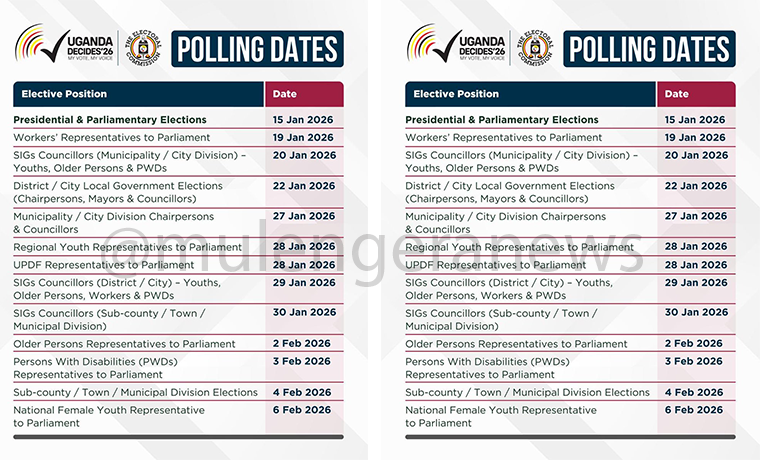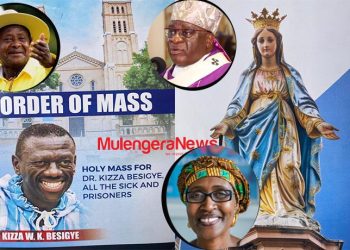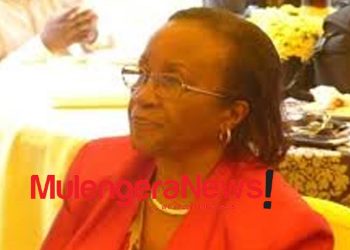By John V Sserwaniko
To understand how humiliated Apollo Nsibambi was the day he resigned his ministerial position and left Mengo, one just has to read Charles Peter Mayiga’s article published in the Monitor newspaper of 6th March 1996.
Writing on behalf of the Mengo Establishment, Mayiga sought to give a more official view on the very polarizing debate that followed Nsibambi’s public resignation during the Lukiiko session that sat on 29th January 1996. The 1995 Constitution had just been promulgated in October 1995 and Mengo remained bitter with its militants in the Lukiiko and Mulwanyamuli-led Cabinet grumbling Museveni had betrayed them. They wanted federal and he offered decentralization clothed under the Charter proposal under which willing Buganda districts would federate but still remain under the central government control.
So during the 29th January Lukiiko session, Nsibambi (who had freely been preaching tolerance and engagement with Museveni following the CA betrayal) attempted to give a long speech defending what Museveni had offered under the 1995 Constitution (basically decentralization where Buganda had demanded full federalism as a reward for their sacrifice and support for the NRA war).
As ever, Nsibambi printed and carried copies of his submission which he distributed to members of the Lukiiko and cheerleaders in the gallery. He was heckled and made to shed tears in the Lukiiko that day. His views, trying to rationalize the Museveni Charter deal in the place of Federo, were unanimously rejected not only by the Ganda militants in the gallery but by fellow Lukiiko members.
Bbale Mugera, who wasn’t only Lukiiko member but an in-law who marries Kabaka Mutebi’s sister, made Nsibambi seem clearly isolated and out of touch with what the king’s views were regarding the Charter vs. Federo debate. As others cheered him on, Mugera dared Nsibambi to quit instead of continuing to pretend to be a minister (in charge of human rights, political & constitutional affairs) yet he wasn’t prepared to propagate collectively-taken decisions. The official position was total rejection and condemnation of the Museveni betrayal and here was Nsibambi using the Lukiiko platform to rationalize the same.
MAYIGA’S TAKE
In his book (King on the Throne), Peter Mayiga says in that Lukiiko session, Nsibambi looked “like a theater performer as he announced his resignation.” The silence with which the rest of the Lukiiko and Cabinet members looked on as the gallery heckled and condemned Nsibambi made him realize his colleagues (who always resented him for being very argumentative and contemptuous of their conservative approach to things) had left him to be cut to size.

This is how Mayiga describes events of that stormy Lukiiko day: “He [Nsibambi] felt isolated because no member of the Executive Committee stood up in his defense and with his hand raised to the heavens as if calling out the almighty God, he announced his resignation, gathered the papers he had distributed and bowed to the Namulondo [the throne in the Lukiiko hall] and matched out of Bulange.” Mayiga says by that time Nsibambi (who Museveni made Minister later that same year) was perceived by many as “seeking political fortunes in the central government.” He adds that besides the perceived political opportunism and fortune-hunting, Nsibambi’s complicated character partly drowned him into the heckling he endured that Lukiiko day.
But even before that day and the CA betrayal, Mengo insiders say, Nsibambi had already fallen out with many other colleagues he was serving with in the Ssabataka Supreme Council (SSC) including influential lawyer and Kabaka advisor John Katende. Mengo officially submitted a 107 page memorandum to the Odoki Constitutional Commission leading up to the CA. Nsibambi, who was the line Minister, wanted it reduced to something much smaller, accusing the lawyers of being verbose and unnecessarily wordy even on very simple things. This grew into a major disagreement and Mutebi had to personally intervene and sided with the lawyers since this was more of a legal matter than what Nsibambi was saying. Knowledgeable sources say, Nsibambi grumblingly let this pass but the wedge between him and key Mutebi officials remained. During the drafting meeting, he was furious why the lawyers were being legalistic instead of going straight to the point.
Mayiga recalls that Nsibambi was also vehemently opposed to the idea of holding many public functions and ceremonies as a way of popularizing the younger Kabaka Mutebi who was leading an institution whose relevancy had to be emphasized through such public engagements. That Nsibambi onetime said in a meeting “buno obukolokolo bwamwe buntamye [I’m fed up with your little functions].” His point was this amounted to being unnecessarily extravagant moreover for an institution that survived on begging handouts from equally impoverished people. The Katikkiro says, well intentioned as all this was, such things often made Nsibambi misunderstood by his peers at Mengo.
Nsibambi (who had been a very outspoken federalist through the CA sessions up to the day Chief Prince Besweri Mulondo betrayed Buganda cause saying he wasn’t comfortable with UPC backing federal) eventually toned down and accepted reality that the Federo fight had narrowly been lost. His like-minded Kabaka loyalists like Rhoda Kalema, Senteza Kajubi & others were equally disappointed but life had to go on. Before the CA finally dispersed, Nsibambi’s conduct caused fellow CA Delegates who had allied with him to begin perceiving him with suspicion. One area that discomforted many was when PK Semogerere and Sam Njuba led others to walk out protesting the entrenchment of the Movement System, Nsibambi refused to join them saying he didn’t believe in such confrontation anymore. He stayed put arguing he had realized there was need to engage with Museveni’s group rather than keeping away. Nsibambi (who joined CA as one of the 10 Presidential nominees after Kabaka fronted his name along with that of Aziz Kasujja) called this being pragmatic.
After the Mulondo betrayal, that caused misery everywhere in Buganda, Nsibambi returned to Mengo and encouraged colleagues not to give up. His idea was “let’s fight on but approach things very pragmatically because Buganda’s pre-1966 semi-federal status was permanently gone.” To him Republicanism had become entrenched making a return to the pre-1966 status quo impossible.
This caused him to be misunderstood by many at Mengo where he had long been misunderstood as a show off because he always referred to his late father Simeon Nsibambi’s deep personal connections to Sir Edward Mutesa (Mutebi’s father). An influential palace official, it was to Simeon Nsibambi’s Bulange home that Mutesa fled as his Mengo palace went up in flames at the height of the 1966 invasion. He later on moved on to Mawogola before finally fleeing the country. This is something Nsibambi always bragged about as he served as an influential member of the Ssabataka Supreme Council (SSC) of the pre-Mutebi coronation days. Some say such solidified history frightened many that Mutebi was perhaps preparing the very eloquent political science Professor to become his future Katikkiro. (For comments, call, text or whatsapp us on 0703164755 or email us at mulengera2040@gmail.com).






























